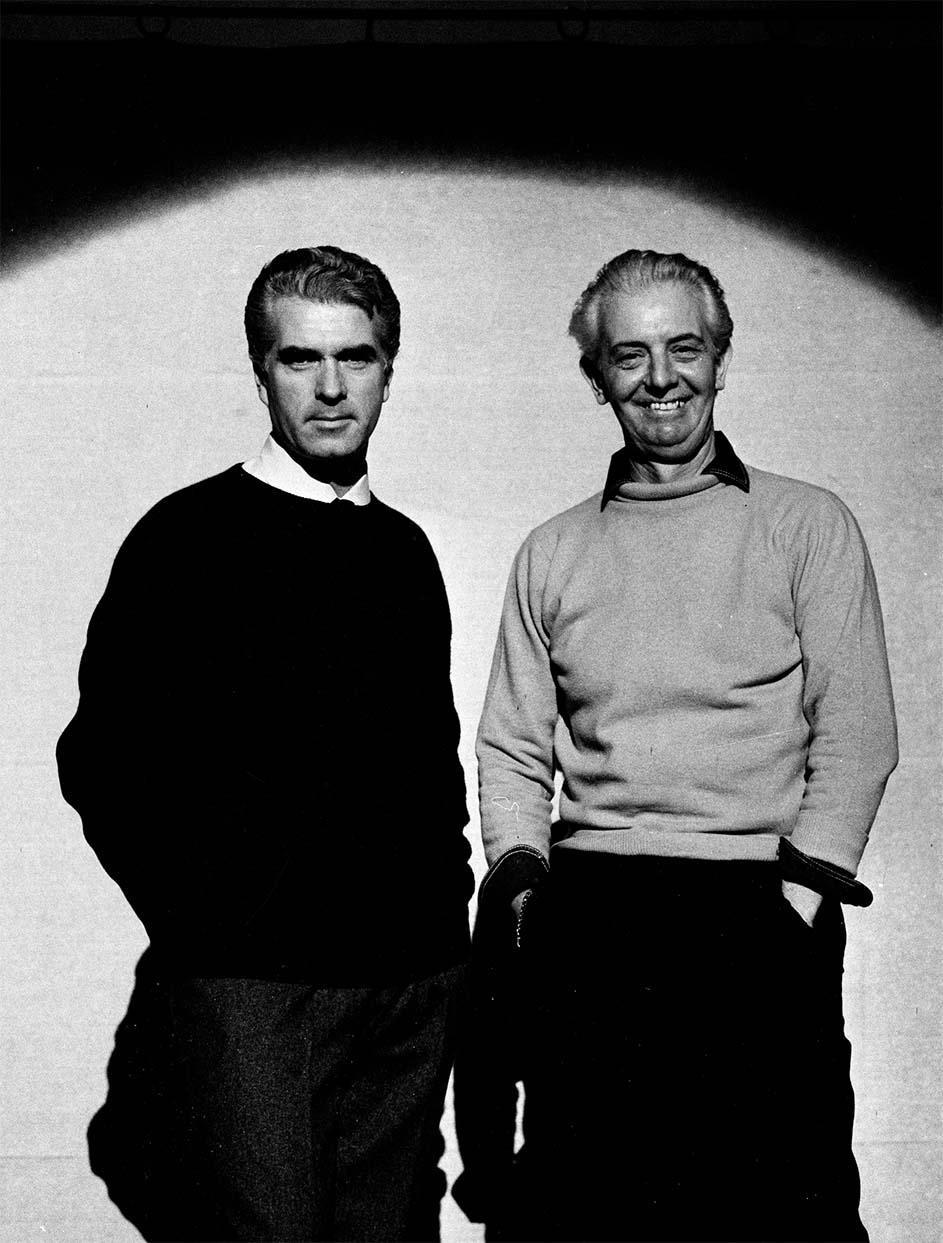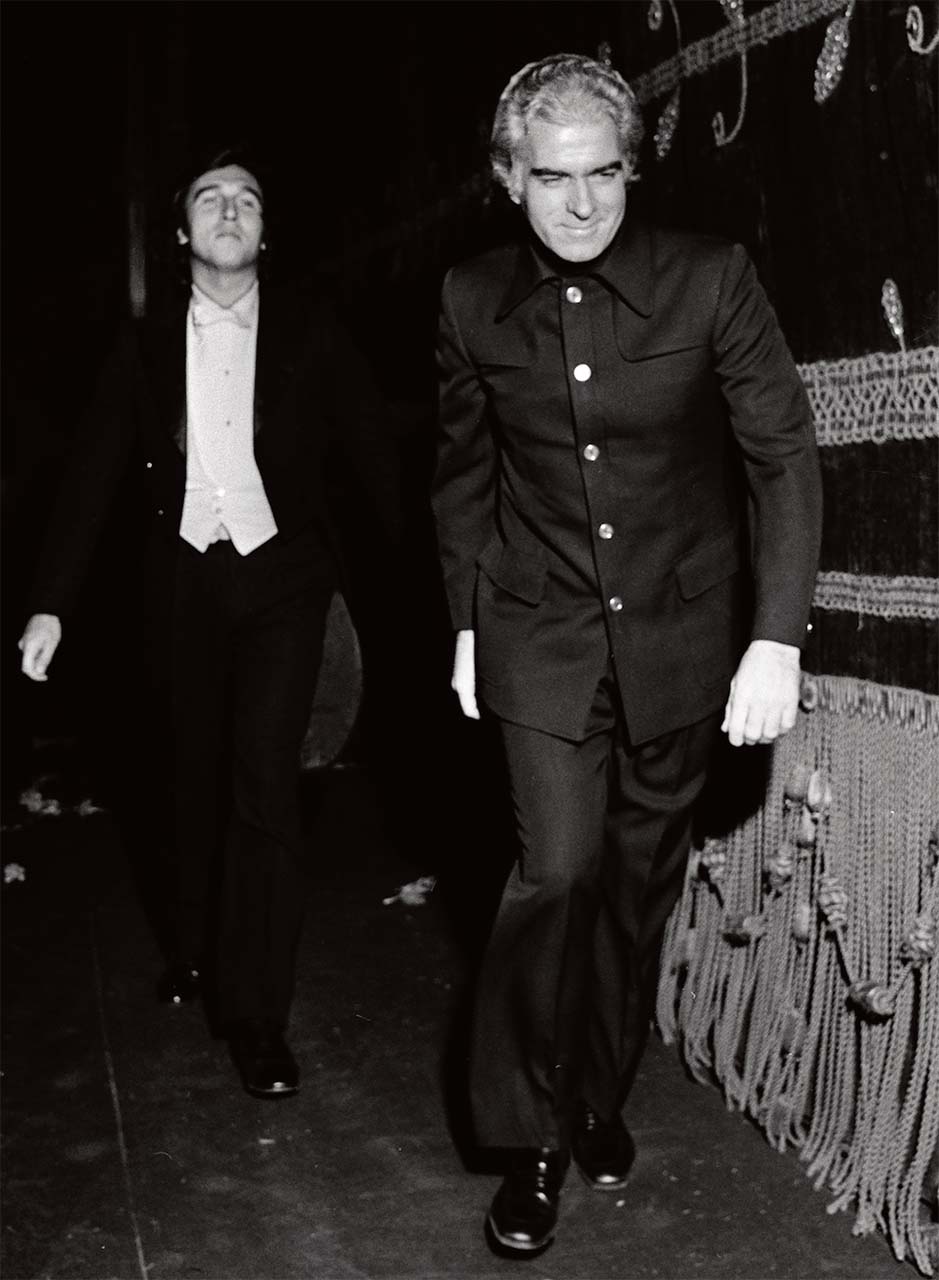Giorgio Strelher at La Scala - Biography
Giorgio Strelher at La Scala - Biography
1921-1928
Giorgio Strehler was born in Barcola, Trieste, on August 14, 1921. “I am descended from a family of musicians. My mother [Alberta Lovrič] was a celebrated violinist and was known by the stage name Albertina Ferrari. My grandfather was a celebrated horn player and later an opera impresario. For years he determined the fortunes of the Verdi Theater in Trieste.” His father Bruno, of Viennese descent, died prematurely of typhus in 1924. In 1928 Strehler moved with his mother to Milan, where he studied first at the Convitto Nazionale “Pietro Longone,” then at the Parini High School.
Giorgio Strehler in his early years in Trieste - Ph. Civic Theater Museum “Carlo Schmidl,” Trieste

1938-1941
He enrolled in acting and diction classes at the Accademia dei Filodrammatici, where he graduated in 1940. “I wanted to become an actor. I graduated with a 'very good'.” He worked in several companies and in 1941 joined “Palcoscenico,” the first experimental group directed by Paolo Grassi: “In about three years of continuous work [...] I became a good actor. But the inner dissatisfaction was growing day by day.”

1943-1944
In January 1943 he made his directorial debut with three one-acts by Luigi Pirandello (Novara, Teatro di Casa Littoria): “In the interruptions of this war - thanks to sick leave - I tried to stage different pieces. They were small pieces, in which I also acted, with rather poor means.” In October he married dancer Rosita Lupi, stage name Rosa Lupo Stanghellini. After the Armistice, infantry second lieutenant Strehler, hostile to the fascist regime, does not join the Republic of Salò and joins the Resistance. He is sentenced to death in absentia as a militant socialist and active anti-fascist. In 1944 he takes refuge in the military internment camp of Mürren, in Switzerland.

1945
In 1945 he moved to Geneva, where he founded the “Compagnie des Masques.” He signs plays under the pseudonym Georges Firmy (his maternal grandmother's last name): “I gathered around me a group of young emigrants, mostly French, and staged my first play, Murder in Eliot's Cathedral,” at the Théâtre de la Comédie in April. That same year he returned to Milan, found “a city destroyed, but a city, that wanted to rise again.” He became theater critic for “Milano Sera” (1945-1946); in December he staged Eugene O'Neill's Mourning Suits Electra at the Odeon Theater. He attends meetings of the theatrical circle “Il Diogene,” whose animators include Paolo Grassi. He also met Tino Carraro and Nina Vinchi, who will help make the history of the Piccolo Teatro.

1947
On March 6th he staged Giuseppe Verdi's La traviata (conductor Tullio Serafin) at La Scala. On May 14 he inaugurates the Piccolo Teatro with a staging of Maxim Gor'kij's Poor people's Hotel. In July the first staging of Carlo Goldoni's Servitore di due padroni. Paolo Grassi joined him in managing the theater: “There were two of us, one from Trieste and one from Puglia.” From now on, Strehler's life would largely take place either on the stage of the Piccolo Teatro or on that of La Scala.
During the rehearsal of Traviata with Tito Gobbi, Margherita Carosio, 1947 - Ph. Erio Piccagliani

1951
He founded the Piccolo Teatro School of Dramatic Art (today's Civica Scuola di Teatro “Paolo Grassi”), where he taught acting for several years.

1955
On October 25, he visited Bertolt Brecht at his East Berlin home to discuss the staging of The Threepenny Opera, which the German playwright will see at the Little Theater on February 10, 1956: “He is in the audience, in his workman's safari jacket; we see that he is enjoying himself, laughing, applauding [...]. He is pale.” He will die a few months later, on August 14. On December 26, he inaugurated the Piccola Scala with the direction of Domenico Cimarosa's Secret Marriage (conductor Nino Sanzogno).
With Paolo Grassi, Bertolt Brecht, 1956 - Ph. Piccolo Teatro di Milano

1964
The Piccolo Teatro's headquarters on Via Rovello is joined by the stage of the Teatro Lirico, where it puts on works by Carlo Goldoni (Le baruffe chiozzotte, 1964), William Shakespeare (Il gioco dei potenti, from Henry IV, 1965), Luigi Pirandello (I giganti della montagna, 1966).
With Nino Sonzogno, 1964 - Ph. Erio Piccagliani

1965
In Salzburg he staged the memorable edition of Mozart's The Abduction from the Seraglio, where the young conductor Zubin Mehta was first revealed.

1968-1971
In the year of the student protest, he resigned from the Piccolo Teatro and moved to Rome, where he founded the Gruppo Teatro e Azione, with which he staged Peter Weiss's Cantata di un mostro lusitano (March 1969) at the Teatro Quirino. In December 1971 he inaugurated the new La Scala season with Giuseppe Verdi's Simon Boccanegra (conductor Claudio Abbado).
With Claudio Abbado, 1971 - Ph. Erio Piccagliani

1972-1973
Paolo Grassi was appointed superintendent of the Teatro alla Scala (1972). Strehler returned to Piccolo Teatro as sole director. In March 1973 he staged Le nozze di Figaro (conductor Georg Solti) at the Opéra royal de Versailles. In the same year in Salzburg, at Das Spiel der Mächtigen (the German version of The Mighty Game), he met actress Andrea Jonasson, whom he married in Milan in 1981.
With Andrea Jonasson, Antonio Ghiringhelli, 1971 - Ph. Erio Piccagliani

1982-1984
In 1982 he received the Légion d'honneur from President François Mitterrand. In 1983 he was appointed director of the Théâtre de l'Europe, housed at the Théâtre national de l'Odéon in Paris. In September he took over a vacant seat in the European Parliament in the ranks of the Socialist Party, with which he had run in the 1979 elections. His engagement would end in June of the following year.
With Lorin Maazel, 1980 - Ph. Lelli and Masotti

1986-1987
The 19th-century Teatro Fossati in Milan was restored and transformed into the more modern Piccolo Teatro Studio. In 1987 a theater school ws opened within the Piccolo Teatro. In the same year, having left the Socialist Party, the director was elected to the Senate of the Republic as an independent on the Communist Party lists.

1997
On the occasion of the Piccolo's 50th anniversary, he staged a new edition of Goldoni's Harlequin and began rehearsals for Mozart's Così fan tutte. On the night of Deember 25 he died of a heart attack at his home in Lugano.
